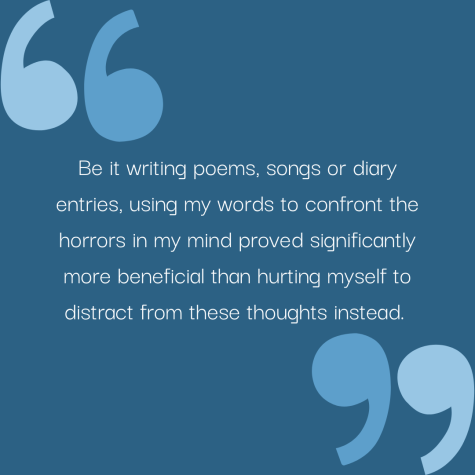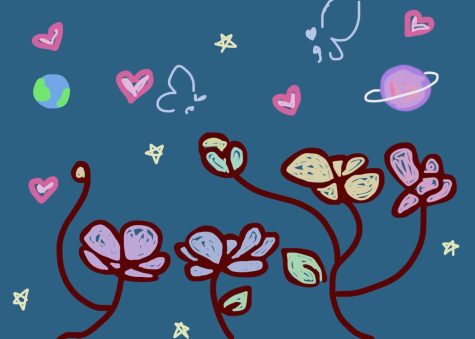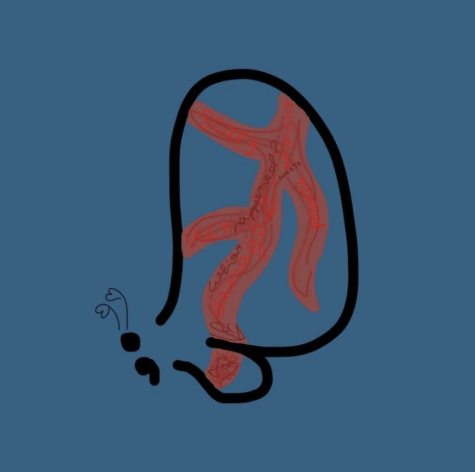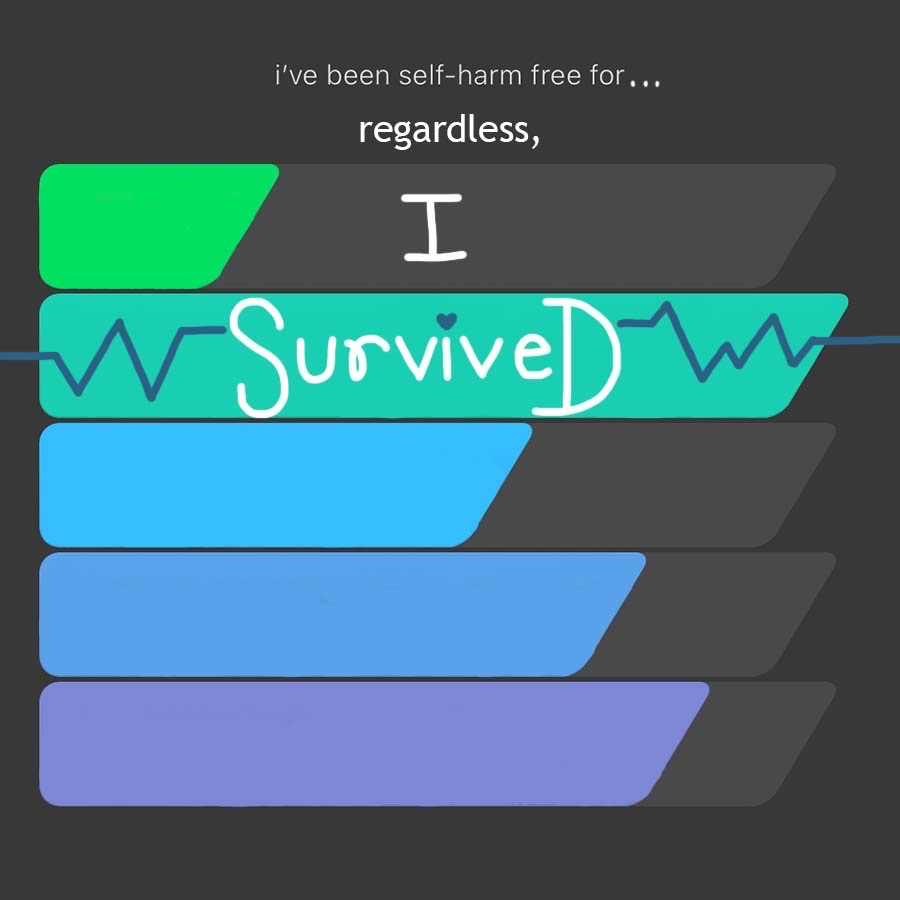Reclaiming my body from myself
Coming to terms with the aftermath of my self harm addiction
Although it is easy to obsess over the time you have been clean, it is important to recognize the strength it took you to get clean in the first place
April 12, 2022
Content warning: This article mentions self harm and depression. Reader discretion is advised.
“Who is in control?”
This question lingers in my mind, just like the aroma of smoke on a sweater. Just wash the sweater. It’s that easy, right? So, just take control of your body. Just answer that question with the answer that you want to be true. And do this every night for months to follow, longing for the stinging event and the numb aftermath that follows.
But just like the smell of smoke still lingers on a washed sweater, taking control does not diminish the presence that the world has over you. Inevitably, the control that you believe you have over yourself will be stripped from you, leaving you hollow and at the mercy of the world’s triggers. Eventually, you’re forced to address the elephant in the room: is it really you in control? Or are you just trapped in an endless cycle, where your brain selfishly forces your body to feel the same pain — to bleed the same way — that it does?
I desperately tried to get clean for four months, but I could never escape this seemingly endless cycle. Every attempt to get clean felt as useless as a drop of water fighting the raging forest fire of relapse.
It was only after I thought I’d lost my last shred of hope that I found a way to turn my drop of water into a tsunami. As it turned out, I could quench my once-uncontrollable desire for another relapse with nothing more than a pencil, a paper and a little bit of inspiration. Be it writing poems, songs or diary entries, using my words to confront the horrors in my mind proved significantly more beneficial than hurting myself to distract from these thoughts instead.

Beauty is most visible among ugliness — or at least that’s what I learned from the piles of young adult novels I’d devoured when I was younger. So I began drawing on my arms rather than cutting them, and the angry red gashes of the past blossomed into butterflies, hearts and planets. I finally believed that I was OK because, by covering the scars that I deemed ugly, I could distract myself with this superficial illusion of beauty. By drawing on myself, I was able to feel somewhat “normal” again.

But no amount of beauty can ever trump the overwhelming shame and ugliness I feel when I look down and see the jagged lines of raised skin that run like a map along my forearms. All my life, I’ve wanted nothing more than to love my appearance, but I fear I may never learn to love it again. How can I learn to love myself if, permanently carved into my body, I have the ugly remnants of myself at my worst? Even though my mind has healed, the scars are never going to fully disappear. So how can I move on, how can I love myself, if all I see are constant reminders of my mind at its ugliest?
The thing that no one tells you about self harm is that the aftermath can hurt just as much as the event. And it took me a long time to learn that my scars don’t make me “damaged.”

I put out a forest fire to overcome my addiction, thus the dimly lit matches of my own judgment are insignificant in the grand scope of what really happened.
To put it bluntly, I decided to cope with a shattered mind by taking it out on my body instead. But my mind is healing, as is my body: my scars are a representation of the strength that it took to finally get clean. I am not “damaged,” “crazy” or “ugly,” and I will never apologize to anyone, other than myself, for doing what was necessary to stay in control of my body, to appease my mind and to stay alive.
Resources that helped me in the process of recovery:
- 7Cups – an online chat forum where members can chat with volunteer listeners for free.
- Suicide hotline – (800-273-8255)
- I am sober – an app that lets you track how long you have been sober, and allows you to converse with others who are attempting to get clean from an addiction similar to yours
- Crisis text line – text “HELLO” to 741741




























